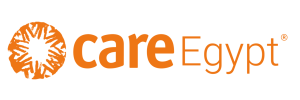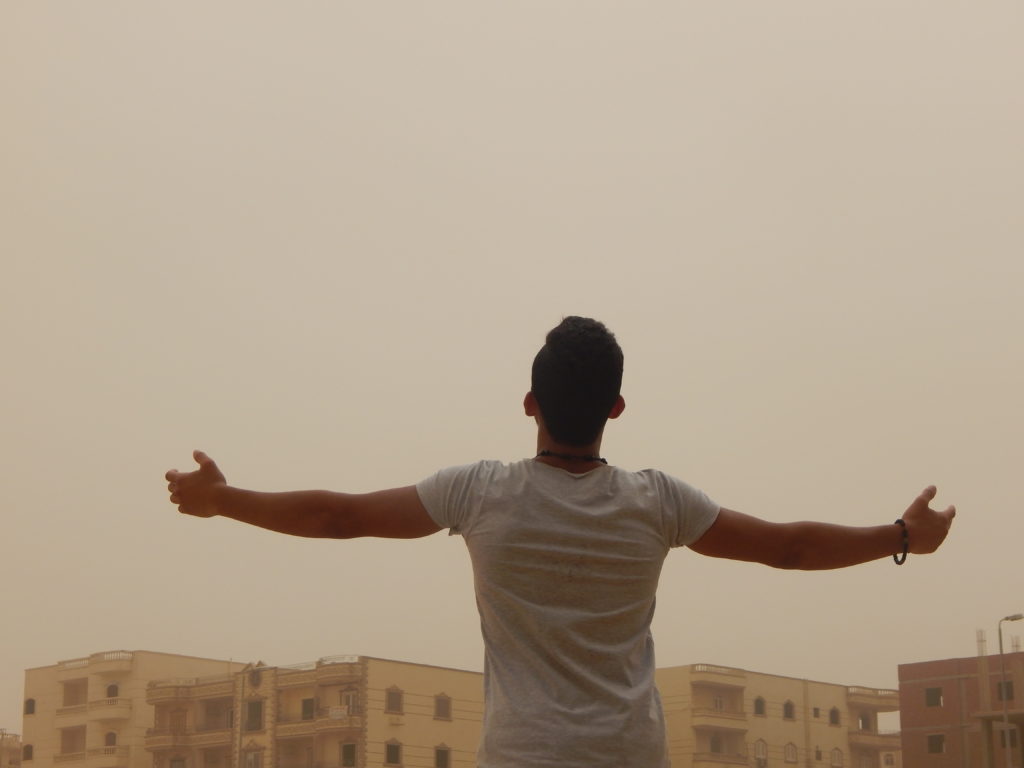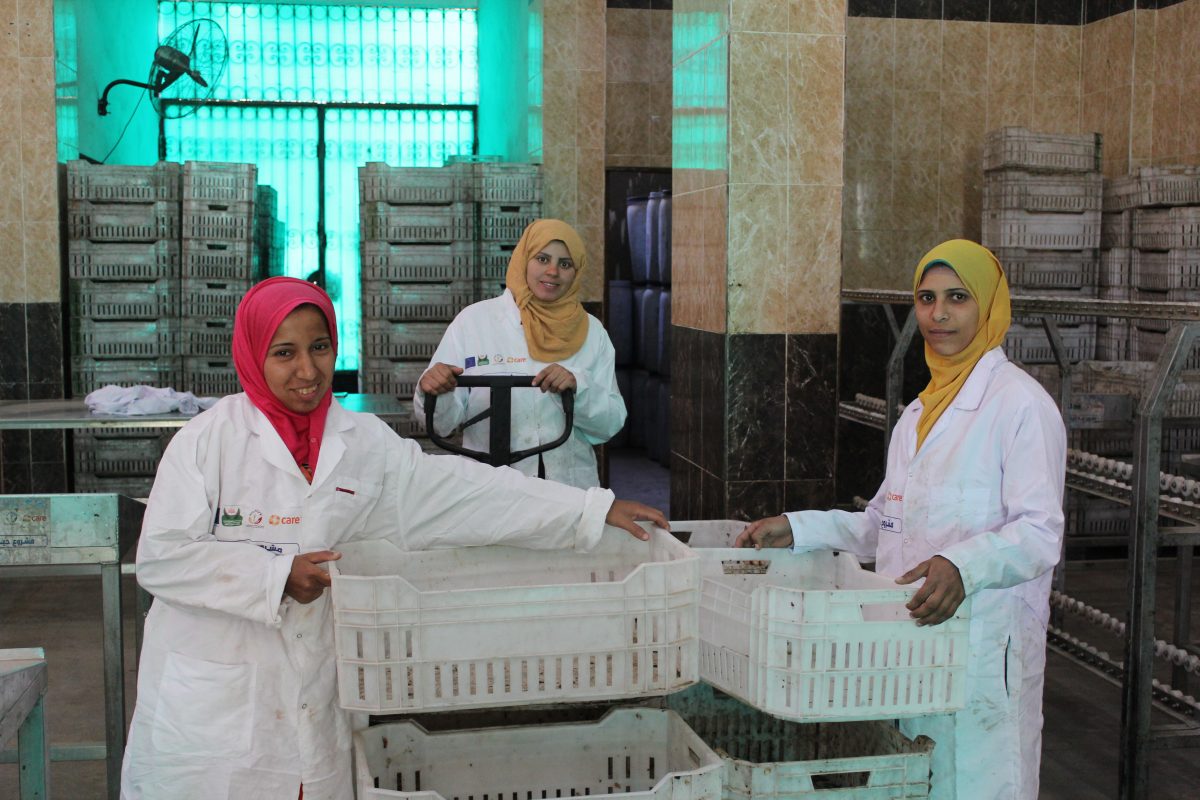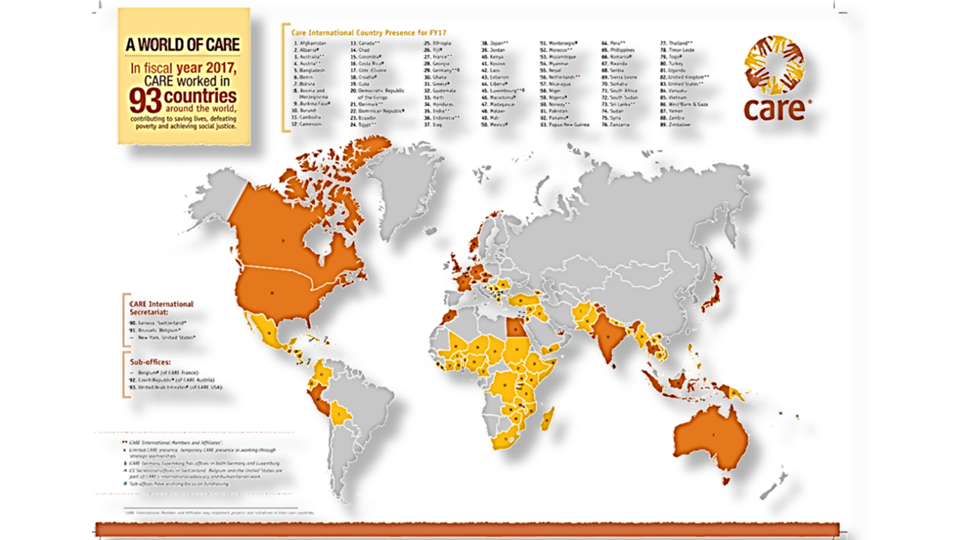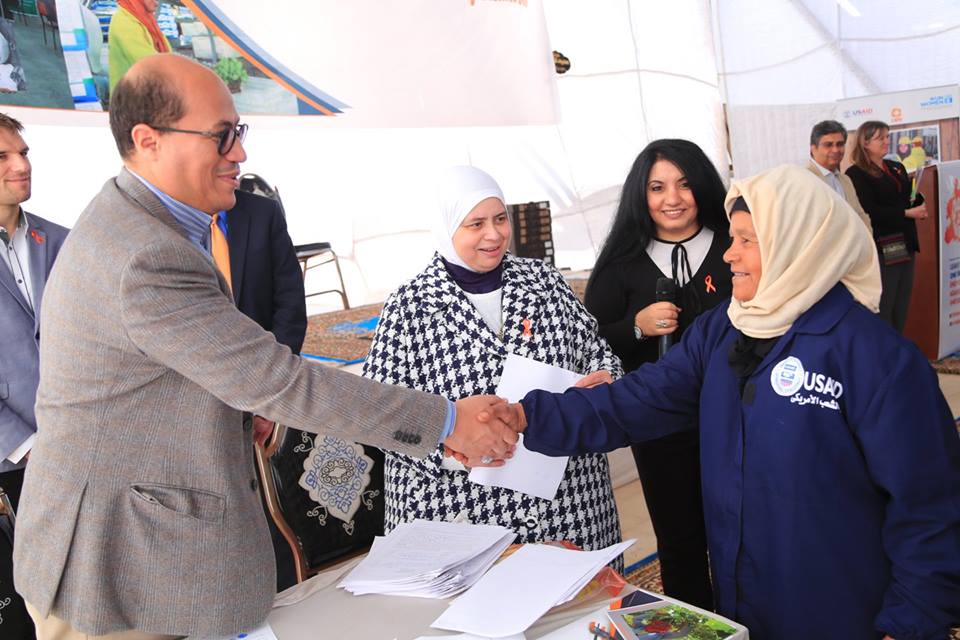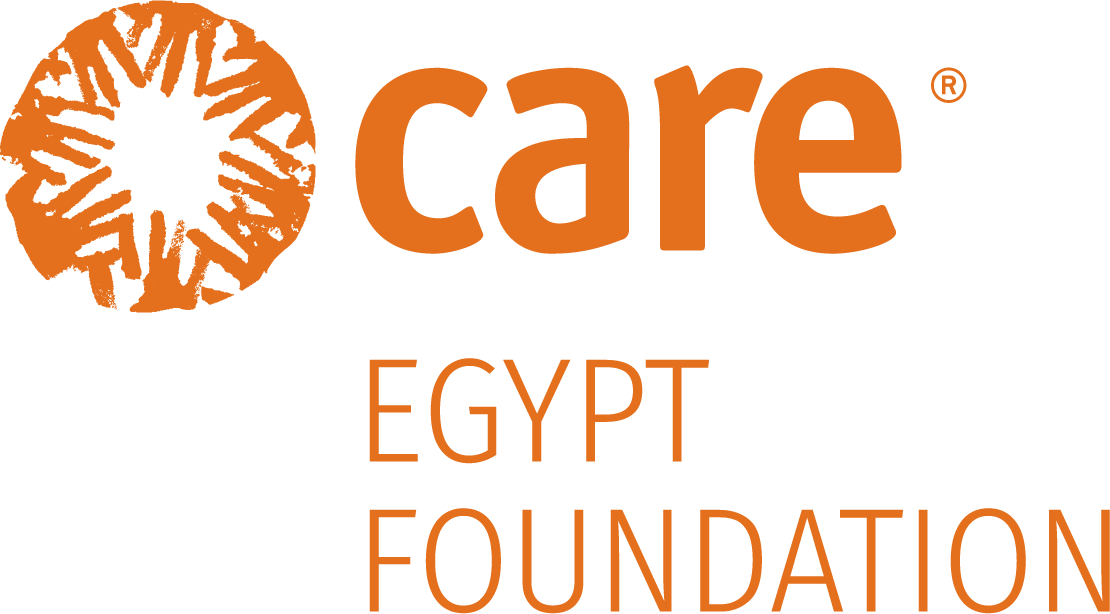KL is a 17 year old Syrian adolescent who moved to Cairo after the war took place in Syria.
As all Syrians who were forced to leave their homes, remembers the exact date in which he left his home on 13 November, 2012.
When KL moved to Cairo, he was only 14 years old.
As he moved with his family and without his father, KL began to earn his family’s living by working in parking lots, supermarkets, grocery stores and hairdressers.
“I had to work, though I faced many problems to find a job, Some days I returned home with 2 pounds and this was all I succeeded to get”
In 2015, His mother saw an announcement on Facebook for an “Interactive Theatre” asking for volunteers by CARE in a CSO near their house.
“Though I was a little bit not sure that this is a true training, I gave myself a chance to have something new!”, He added “I felt at the beginning that I do not belong neither to the place nor participants and that I am a stranger as I always feel”.
But this feeling has been dramatically changed after the third session of the training.
“This spirit I have felt in the group brought back the same feeling I used to have with my friends back in Syria”.
During the first stage of the training in which the trainer helped the participants to get closer to their personalities and memories, many hurtful memories were passing in KL’s mind.
KL remembered the sexual harassment incident he faced when he was 8 years old. As he described, a man took him in a hidden place and forced him with a knife to take off his clothes.
KL mentioned that the perpetrator threatened him that he will be killed if he told anybody about what happened.
That was not the only memory that crossed his mind, KL also remembered his two close friends who died in front of his eyes in Syria.
“I became accustomed to scenes of blood and murder, I need help!”
After some sessions and getting involved in acting, KL’s character has completely changed, He became more optimistic about his future.
His smile began to appear for the first time since he came to Egypt as he mentioned.
He found new friends and his talents appeared. Moreover, He became a defendant for the cause of the project and combating Sexual and Gender Based Violence.
“I became more close to problems that Syrians face and I feel I have a role in changing my community”.
The interactive theatre training has helped him overcome his inner pain and awful incidents he faced in his life.
KL, as per the trainer’s evaluation, has a great potential in acting and in interactive theatre.
The trainer and his colleagues always encourage him before and after the performance.
The young man’s scenes are met with loud applause from the audience every time he conducted theatre performances.
“I have retrieved my dreams and I have a role model, our theatre trainer”.
KL offers help in many scenes in case of absence of his colleagues. He has been a co-trainer for a new theatre group for women in the same project.
Moreover, he was recruited as a theatre trainers in a Syrian local NGO working in Egypt. KL’s dream is coming true.
He described the “Interactive Theatre” training as a turning point in his life and apparently it will be.
NB: KL is not the real name of the young man as per her request due to the sensitivity of the incident he faced
